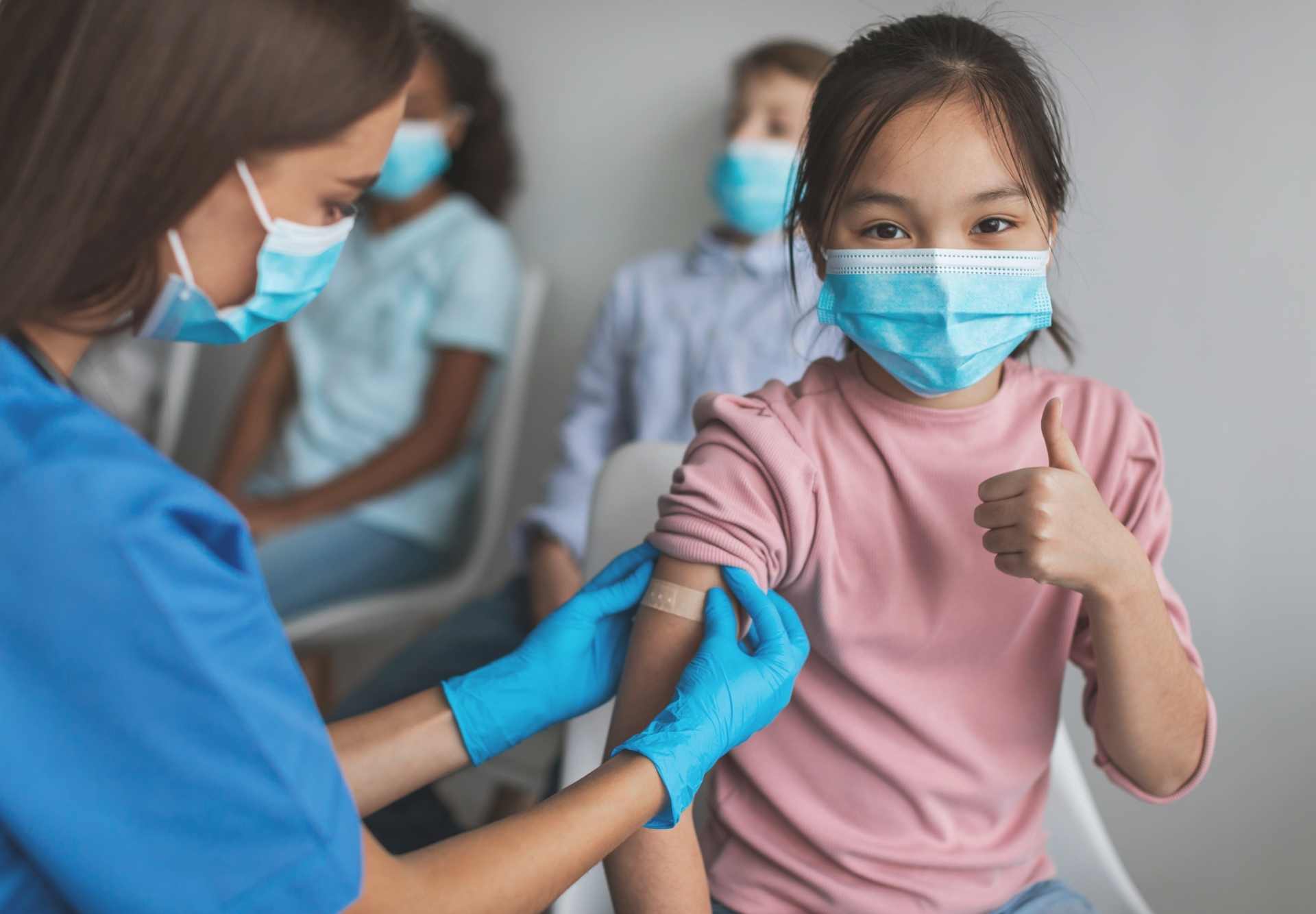Are you curious about how COVID-19 vaccine doses work for children? Researchers utilized mathematical calculations and current adult dosing data to determine safe doses for testing on children. Based on this research, experts have identified a safe and effective COVID-19 vaccine dosage for infants and children over 6 months old.
Both the Pfizer-BioNTech and Moderna COVID-19 vaccines are approved for children aged 6 months to 17 years. Children are recommended to receive three doses of the Pfizer vaccine and two doses of the Moderna vaccine. Individuals aged 5 and above will receive two injections of either the Pfizer or Moderna vaccine.
Pharmaceutical giants like Pfizer-BioNTech, Moderna, and Johnson & Johnson/Janssen offer COVID-19 vaccines for purchase in the USA. The Centers for Disease Control and Prevention (CDC) recommends vaccination against COVID-19 for individuals aged 6 months and older to reduce the risk of severe outcomes related to the virus.
Development of Children’s Vaccine Dosages
During pediatric clinical trials, various test doses were administered to determine the optimal dose with minimal adverse effects. By leveraging the effective adult dose, researchers used sophisticated mathematical models to calculate two or three test doses suitable for children.
Researchers analyze blood samples from these trials to assess treatment efficacy, adverse reactions, and the immune response to each dose. Finding the right vaccine dose involves a delicate balance to maximize effectiveness while minimizing side effects.
Recommended Dosages for Children by Age
Clinical trials revealed that a lower dose of the Pfizer-BioNTech vaccine was 90.7% effective in preventing symptomatic COVID-19 and eliciting a robust immune response. Children under 5 years old are advised to take three micrograms of the Pfizer-COVID-19 vaccine. For children and adolescents aged 5 to 11, a dosage of 10 micrograms (one-third of the adult dose) is recommended. Lower doses are beneficial for young children due to their robust immune systems, which tend to weaken with age.
Pfizer administers the same dose to adolescents and adults, with the vaccine demonstrating 91% efficacy up to six months post-second dose and 97% effectiveness against severe disease.
Moderna’s COVID-19 Vaccine follows an age-based dosing schedule. Children under six receive a 25-microgram dose, those aged 6 to 12 receive 50 micrograms, and individuals 12 and older, including adults, receive 100 micrograms.
Vaccine Requirements for Children: Number of Doses Needed
Children under 4 years old receive the Pfizer vaccine in a three-dose series, while the Moderna vaccine is administered in a two-dose series. Vaccination schedules for children aged 5 and older mirror those for adults, necessitating two doses spaced three weeks apart.
A booster dose is essential to maintain immunity, similar to other vaccines like the whooping cough vaccine. The CDC recommends a booster for children and adolescents aged 5 to 17 who have completed the initial Pfizer series. Those who received the Moderna vaccine do not currently require a booster. Children aged 5 to 11 with compromised immune systems may need a booster 28 days after their second dose. Recommendations for booster shots may evolve as more data on vaccine efficacy in children becomes available.
Safety of Vaccine Dosages
COVID-19 vaccines are inactive, meaning an excessive dose will not cause COVID-19 infection. Both Pfizer’s and Moderna’s mRNA vaccines contain only a portion of the virus, specifically the viral spike protein, which triggers the immune response without causing infection.
A full immune response typically occurs two weeks after the second vaccine dose, enabling the body to recognize and defend against the COVID-19 virus.
While vaccine development against COVID-19 progresses rapidly, safety remains paramount. Pfizer’s vaccine rollout for children took longer to ensure safety. Dosages are carefully determined based on factors like weight, liver and kidney function, and overall health, considering data from adult trials. Consult your child’s healthcare provider to confirm vaccine suitability based on their medical history and any concerns you may have.

